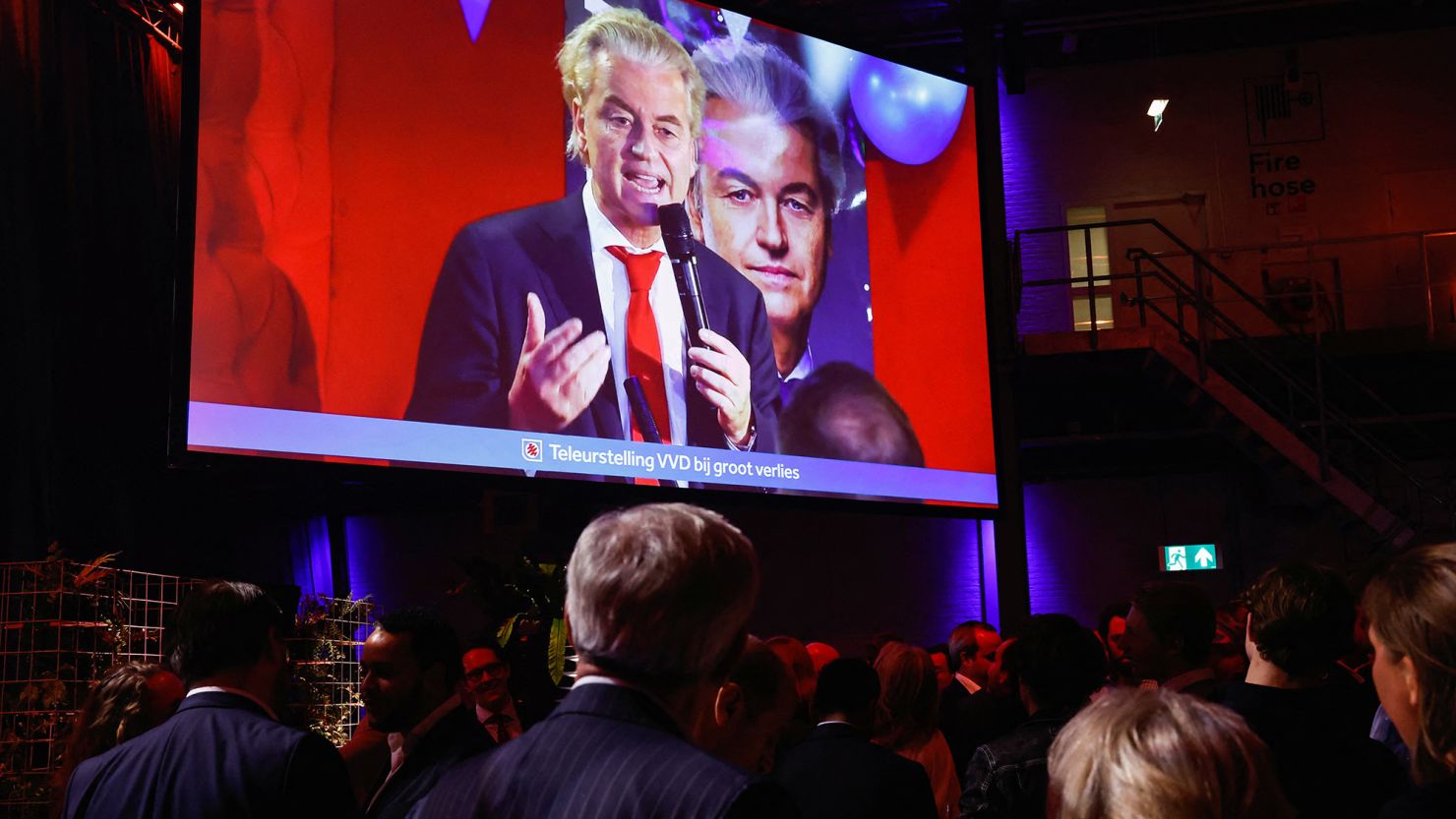Netherlands: Resistance To EU's Retaliatory Measures On Trump's Tariffs

Table of Contents
Economic Interdependence between the Netherlands and the United States
The Netherlands' resistance to the EU's retaliatory tariffs stems largely from its deep economic entanglement with the United States. This interdependence manifested in several key areas, making a blanket EU response problematic for Dutch interests.
Agricultural Exports and the Impact of Tariffs
Dutch agricultural exports represent a significant portion of the country's economy. The US is a major market for Dutch products, particularly flowers, dairy, and horticultural goods. Trump's tariffs, and subsequently the EU's retaliatory measures, disproportionately impacted Dutch farmers and businesses reliant on these exports.
- Flowers: The Netherlands is the world's largest exporter of flowers, with a substantial portion heading to the US market. Tariffs directly increased costs, impacting profitability and competitiveness.
- Dairy: Dutch dairy products faced increased tariffs in the US, leading to reduced sales and impacting the livelihood of dairy farmers.
- Horticultural products: Various other agricultural exports faced similar challenges, creating a ripple effect across the Dutch agricultural sector.
The economic impact was considerable, leading to a widening Netherlands trade deficit with the US and fueling calls for a more nuanced approach to the EU's retaliatory strategy. These challenges highlighted the limitations of a "one-size-fits-all" response to trade disputes when dealing with diverse national economies within the EU.
Strategic Importance of US Investment in the Netherlands
The Netherlands also benefits significantly from substantial foreign direct investment from US companies. Many American multinationals have established major operations in the Netherlands, creating numerous jobs and contributing significantly to the Dutch economy. A trade war risked jeopardizing these investments and potentially causing job losses, adding another layer to the Dutch government's concerns regarding the EU's retaliatory tariffs.
- High-tech industry: Many US tech companies have a significant presence in the Netherlands, benefiting from the country's skilled workforce and strategic location.
- Logistics and transportation: The Netherlands' role as a major European logistics hub attracts substantial investment from US companies in this sector.
- Financial services: Numerous US financial institutions have operations in the Netherlands.
Any escalation of trade tensions threatened to negatively impact this crucial investment, threatening economic stability and job creation within the Netherlands. This economic reality significantly influenced the Dutch government's position on the EU's retaliatory measures.
Political and Diplomatic Considerations
Beyond the purely economic factors, the Netherlands' response was shaped by its political approach to EU policy and concerns about broader transatlantic relations.
The Netherlands' Pragmatic Approach to EU Policy
The Netherlands has historically adopted a relatively pragmatic and independent approach within the EU, prioritizing its national interests alongside its commitment to the bloc. This approach was evident in its response to the EU's retaliatory tariffs. While supportive of the EU's overall goal of challenging unfair trade practices, the Netherlands advocated for a more nuanced strategy that considered the specific economic impacts on its own businesses and its strong relationship with the United States.
Concerns over Escalation and Transatlantic Relations
The Dutch government expressed significant concerns about escalating trade tensions between the US and the EU. They prioritized maintaining strong transatlantic relations, recognizing the importance of these ties for both economic and security reasons. A full-fledged trade war posed a serious risk to these relationships, prompting the Netherlands to seek diplomatic solutions and advocate for de-escalation within the EU. This cautious approach reflected the Netherlands' desire to avoid further damaging transatlantic relations and safeguard its significant economic partnerships with the United States.
Internal Opposition within the Netherlands
The Dutch government's resistance to the EU's blanket approach wasn't solely a matter of national strategy. Significant internal pressure contributed to their stance.
Business Lobbying and Political Pressure
Dutch businesses, particularly those heavily reliant on US trade, exerted considerable lobbying pressure on the government. They argued that the EU's retaliatory tariffs would inflict disproportionate harm on their sector without significantly impacting the overall trade dispute. This pressure manifested in intense discussions and negotiations, shaping the government's strategy and its calls for a more measured response.
Public Opinion and Media Coverage
Public opinion in the Netherlands, shaped by extensive media coverage of the trade dispute and its potential consequences, played a role in influencing the government’s stance. Concerns over job losses and economic disruption fueled calls for a more cautious approach, adding further weight to the government's efforts to mitigate the negative effects of the EU's retaliatory tariffs. The Dutch media played a key role in disseminating information and shaping public discourse around this complex issue.
Conclusion
The Netherlands' resistance to the EU's retaliatory measures against Trump's tariffs provides a valuable case study in the complexities of EU-wide trade policy and national interests. The interplay of economic interdependence with the US, a pragmatic approach to EU policy, and strong internal opposition demonstrated the challenges of enacting a uniform trade strategy within a diverse economic bloc. This case highlights the importance of considering the specific economic circumstances and political sensitivities of individual member states when formulating EU-wide responses to global trade disputes. Further research and discussion on the Netherlands' resistance to EU tariffs and its implications for future trade negotiations are crucial for a deeper understanding of the intricacies of transatlantic trade relations. We encourage further exploration into Dutch-US trade relations and the evolution of the EU's trade policy in light of this significant episode.

Featured Posts
-
 Pedro Pascals New Jawline Plastic Surgery Or Ozempic
May 18, 2025
Pedro Pascals New Jawline Plastic Surgery Or Ozempic
May 18, 2025 -
 Amanda Bynes Seen With Friend Following Only Fans Announcement
May 18, 2025
Amanda Bynes Seen With Friend Following Only Fans Announcement
May 18, 2025 -
 Ufc Vegas 106 In Depth Fight Card Preview Odds And Predictions For Burns Vs Morales
May 18, 2025
Ufc Vegas 106 In Depth Fight Card Preview Odds And Predictions For Burns Vs Morales
May 18, 2025 -
 Wilders Pvv Internal Disputes Threaten Party Control
May 18, 2025
Wilders Pvv Internal Disputes Threaten Party Control
May 18, 2025 -
 Drake Bells Amanda Bynes Rachel Green Comparison Social Media Reaction And Analysis
May 18, 2025
Drake Bells Amanda Bynes Rachel Green Comparison Social Media Reaction And Analysis
May 18, 2025
